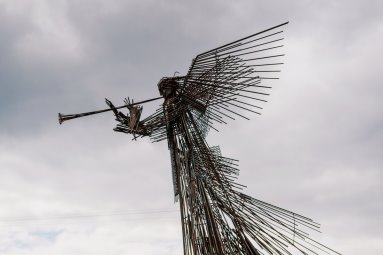Legal Practice Areas
What is a Wrongful Death Lawsuit?

A wrongful death lawsuit is a legal claim to hold someone liable for another person’s death.
Generally, a wrongful death lawsuit is filed when someone’s actions, usually negligence, result in someone else’s death.
Who can file a wrongful death lawsuit in Nebraska?
Anyone can file a wrongful death lawsuit, but they need to be related or connected to the person who died in some very specific ways. In most states, you need to be a close relative to file a wrongful death lawsuit, but some states list only specific relatives that can file. Usually, it’s the immediate family members who file the lawsuit.
If the decedent had a legal will, and there is an appointed executor to the will, that person is likely the only person who can file a wrongful death lawsuit. Without a will, qualified people are usually limited to immediate family members.
Are you thinking about filing a wrongful death lawsuit for a family member’s death? Since the law varies by state, connect with a Nebraska wrongful death attorney to find out if you can file. If you can’t, you might be able to convince a qualified family member to file the lawsuit.
Whoever ends up bringing the lawsuit should consult with a wrongful death lawyer first. Lawyers are highly skilled in their areas of practice and will be your best shot at winning your case.
How fast does a wrongful death lawsuit need to be filed?
Like every lawsuit, there is a statute of limitations on wrongful death lawsuits. While the time limit varies by state, all U.S. states have at least a 1-year statute of limitations. A year seems like a long time to file a lawsuit, but time can slip by quickly.
If you need to file a wrongful death claim, but you’ve been procrastinating or overwhelmed, hopefully it’s not too late. Most claims will be governed by the state’s regulations, but be aware that if the incident involved a government official or agency, you might need to file paperwork with the government in the first 90 days.
If you don’t know your state’s statute of limitations or you’re unaware of your responsibilities for a government-related death, contact an attorney right away. If you don’t follow the law to the letter and file all appropriate paperwork on time, you could lose your right to sue.
How do you prove wrongful death?
Not all deaths – even accidental – qualify as wrongful death. In order to win a wrongful death lawsuit, you’ll need to establish proof in four different areas: negligence, breach of duty, causation, and damages.
Proving negligence
Negligence is the first requirement for a wrongful death lawsuit. Was the death caused by someone’s negligence? Carelessness? Recklessness? Whether intentional or not, any careless action that causes someone else’s death can become a solid foundation for a wrongful death lawsuit.
Proving breach of duty
The next element in proving wrongful death is proving that the defendant had some kind of duty to the victim. For example, business owners are required to keep their stores free from debris and clutter that customers can trip over. If a store owner placed boxes in the middle of an aisle, and a customer tripped over those boxes and died from a head injury, the business owner will likely be found to have breached their duty to their customers.
It wouldn’t matter who placed the boxes in the aisle or whether it was done at the direction of the employer. Employers are responsible for the actions of their employees even when they’re not aware of what their employees are doing.
Proving causation
Perhaps the biggest burden of proof of all is causation. As a plaintiff, you’ll need to prove that the defendant’s negligence caused the person’s death.
The most common causes for wrongful death claims are:
- Auto accidents
- Medical malpractice
- Product liability
- Commercial truck accidents
- Criminal activity
- Workplace accidents
Proving damages
While a wrongful death lawsuit hinges on being able to prove causation and breach of duty, even when those elements are met, you still need to prove quantifiable damages. This can be the hardest part of a wrongful death lawsuit. Without quantifiable damages, you won’t have a lawsuit.
Quantifiable damages include things like:
- Extensive medical bills from hospital stays
- Burial costs
- Lost income and lost potential income
- Loss of inheritance
- Loss of protection, training, companionship, or nurturing
- Loss of benefits like medical coverage and pensions
- Pain and suffering the victim endured before their death
Punitive damages aren’t usually allowed in a wrongful death case. However, some states allow the plaintiff to recover the cost of attorneys’ fees and court costs associated with filing the lawsuit.
How a lawyer can help you in a wrongful death lawsuit in Omaha, NE
Proving a wrongful death lawsuit isn’t easy without a lawyer. To win your case, you’ll need to come up with rock solid, convincing evidence and you might need to call on an expert witness.
Considering the complexities involved, you don’t want to represent yourself in a wrongful death lawsuit. Don’t go pro se in a wrongful death claim – contact an attorney in your area right away. If you have a strong case, an attorney will have the experience required to help you win and get justice for losing your loved one.
What Our Clients Say

Helped me to choose which course would be best!
From day 1 Frank was able to give me several different options and helped me to choose which course would be best for me in my family law case. Everything was done quickly and without problem. I walked away from court and what seemed like a never ending battle completely satisfied with the outcome. I would recommend Frank and his firm to anyone looking for an attorney who really knows their stuff and cares about their clients.
Grace

